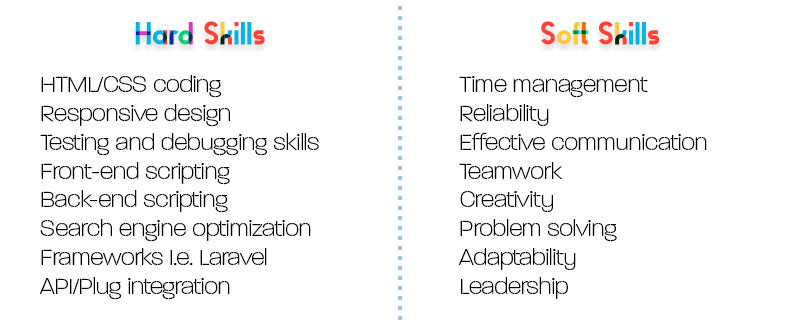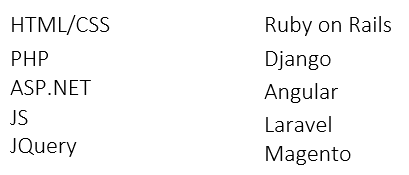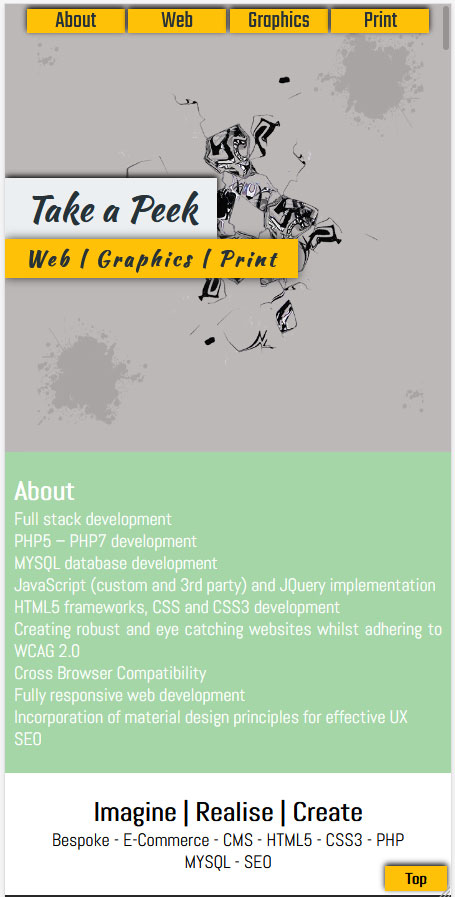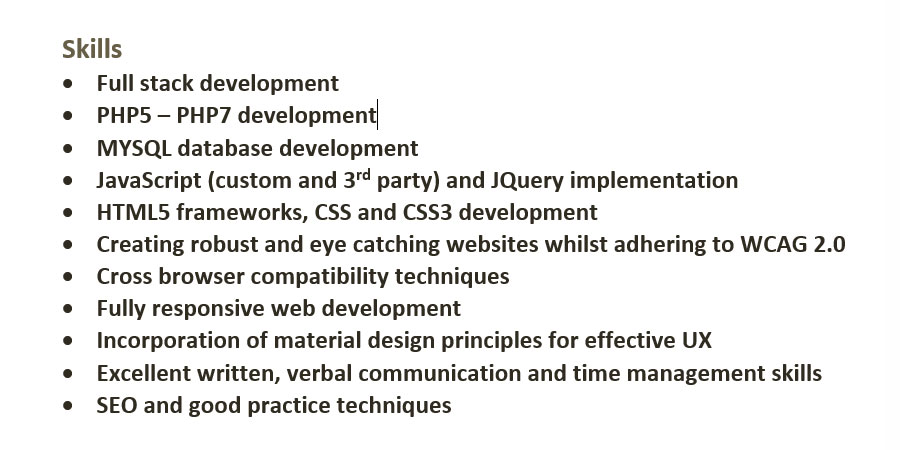You may still be studying or have recently graduated, either way you must be thinking about your next step, employment.
Finding a job can be a bit of minefield and gaining employment fresh out of university can be a little tricky.
But don’t worry, here are some great tips to help you become a more employable web developer.
Carry out a skills audit
Carrying out a skills audit will help you to identify your strengths and weaknesses. Knowing these will help you find jobs that are suitable for your skill set.
Most job advertisements will list a range of hard and soft skills and the easiest way to find out if you are suitable for a role is to check out the required and desirable skills list in the job description.

Hard skills are the things you have learnt in your subject specific classes and lectures (technical knowledge) and soft skills (non-technical) are personal skills you tend to develop yourself over time.
If you keep finding yourself short then you know which skills you need to improve on.
Do something you enjoy
Pick a platform, language, and framework you enjoy using, after all you will be using them on a daily basis in your job.

If you actually enjoy using a particular coding language and/or framework, this will motivate you to work harder, smarter and encourage you to carry on learning new skills and techniques outside of the office.
Research current trends
Technology, platforms, and frameworks are constantly evolving, at times it is difficult to keep up. Many skills and techniques become obsolete in short periods of time. Therefore, you need to monitor trends and what employers want on a regular basis.
Again, the easiest way to keep up with the trends is to look at job adverts to find out what employers are looking for.
The main staples, that have been consistently in demand are:

Don’t worry if you don’t have experience in all of the skills listed, many recruiters advise that you only need to have 80% of the skills listed in a job description to be considered.
Build a portfolio

A portfolio is the most effective way to show your experience to potential employers.
This might seem like catch 22, but employers prefer applicants with prior experience, but to gain experience you need to be, or have been employed.
Even if you haven’t had a commercial role before, there is nothing stopping you from creating mock projects to showcase your talents. Or you can use any work you have created during your course.
A portfolio is your opportunity to show what you are capable of. In today’s digital age an online portfolio is your best option, include the URL in your CV so employers can see a sample of your work.
Carry on training
The commercial web development industry changes rapidly. With new technologies, standards and consumer tastes emerging all the time, you need to keep up by learning new skills.
The most successful developers are those that are constantly learning, with the aim of being multi-discipline developers or full-stack developers. Full-stack developers are in high demand as they can carry out complete projects form the ground up.
Some good sites you can use to increase your skill set are:
Westminster students, don’t forget that you also have FREE access to various coding courses via LinkedIn Learning.
Make sure your CV stands out
Recruiters and businesses will receive large volumes of applications for any given role. Many will not read past the first page of your CV, meaning they won’t get to your cover letter, with some exceptions.
Without making a good impression on the first page of your CV, it is possible they will just move onto the next without reading any further.
To make an impact, have a section at the very start of your CV, using bullet points that show your skills in relation to the actual job description of the role you are applying for. This way a recruiter is more likely to carry on reading.

Look for jobs in the right places
In addition to mainstream recruitment companies, look for opportunities with industry specific recruiters.
These industry specific recruiters will understand the importance of the required skills and the technologies behind them.
Based on this they can match you to suitable jobs based on your profile.
You can also use niche specific social media groups to scout for freelance work and job advertisements. Many graduates have high levels of success using LinkedIn to seek out job offers and projects.
Authors Bio

Dave is an in-house full stack developer and marketing manager for RLA Capital Limited, who has extensive knowledge in web related technologies and digital marketing.
————————————————————————————————————–
☞ A big thank you to Dave for writing this blog! We hope you all find it useful.☜
If you need careers support, your Careers Team is only an email / a message away!
E: careers@westminster.ac.uk| Website | Facebook | Twitter | Instagram |Careers Blog
- An End-to-End Guide to Applying for Jobs: Where and When to Start! - 22 December 2025
- Graduate Success Series: a conversation with Ying Zhang - 18 December 2025
- Why Purpose is Your Greatest Asset in Higher Education - 23 October 2025
